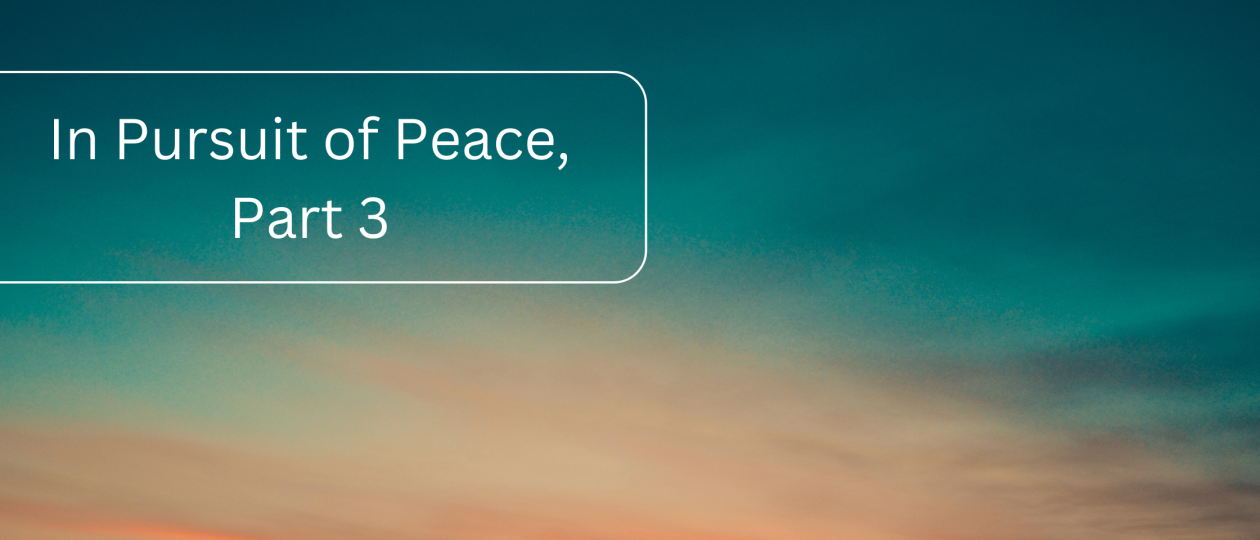In Pursuit of Peace, Part 3
Happy holidays to all of you! I try to work a week or two in advance, so I’m not exactly sure if this post will be going up before Christmas—but nevertheless, a very merry (possibly belated) Christmas to you all! I plan for this to be the final week in our holiday series on the subject of peace. So far we’ve talked about it as a “light on the dashboard” that shows whether you are internally in a good place, and as our natural state which we can return to when the lies and misinterpretations in our unconscious minds are healed. Today, I want to examine how we get from peace to anxiety: how things go wrong, and what taking a positive step may look like.
I was a heavy kid in early grade school, and as you might expect, I got my share of teasing for it—kids calling me “chunky” and things like that. I’ve always been emotional, and I used to laugh it off in public and then go home and cry. Later on, especially in college, I made myself a sort of Scarlet O’Hara vow: “With God as my witness, I will never be fat again!” For a long time, I was obsessed with fitness. As addictions go, it’s a pretty good one. I felt great physically, and it didn’t hurt with the ladies one bit. It wasn’t even the fitness itself that was the problem, but what it was covering up.
The truth was that I was still deeply insecure about myself. But because I had used fitness as a coping mechanism to bury that insecurity, it was many years before I even realized that there was anything that needed fixing. I think this is where the subject of peace tends to become complicated and hazy. Whenever you have a long-term anxiety like this, the first incident is when you lost your peace. For me, in this case, it was being teased for my weight. Once that happens, you can either deal with it in a healthy way and return to peace—for example, by accepting that what the other kids were saying didn’t define me as a person and forgiving them for it—or you can find a coping mechanism.
The trouble is that over time, these coping mechanisms often become so important to us that we begin to think of them as an essential part of our identity. I wasn’t just fit, I needed to be fit in order to feel okay about myself. And although I didn’t fully realize it at the time, it was a constant source of anxiety for me.
When you’re dealing with a long-term issue like this, I would urge you to try and recall where it all started. Ask yourself what your earliest memory is of feeling that way, even if there doesn’t seem to be a direct causal link. The hard part is looking past whatever coping mechanism you may have formed in the meantime. It can be frightening to think of separating yourself from them—it can even feel wrong at first. But if you can heal the source, you will often find that you no longer need it, and that it was never really that important in the first place.
Have a blessed, wonderful day!
Dr. Alex Loyd



